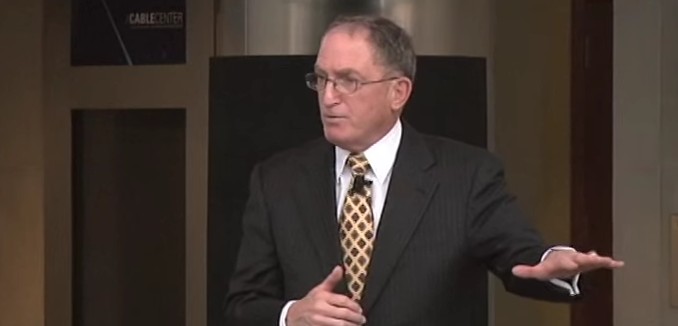Gen. Charles Krulak, the former Commandant of the United States Marine Corps and former member of the Joint Chiefs of Staff, said that the nuclear deal with Iran, known as the Joint Comprehensive Plan of Action (JCPOA), is not “in the best interests of the United States of America, the State of Israel, the States of the Middle East or, in fact, the world community,” in a statement released yesterday in conjunction with the Birmingham (Alabama) Jewish Federation.
I don’t think there is much value in repeating that rationale other than to say that we went into this process with specific goals as a baseline and came out with many of those goals either partially achieved or not achieved at all. Even those partially achieved are, at the end of the day, dependent on Iran acting like a trustworthy member of the world community. I am unable to bet the safety of my Country or the State of Israel or any other country for that matter on the trustworthiness of Iran. In all fairness, there are others who disagree and do so with great passion and belief in their point of view. I respect their beliefs and do not, for a minute, minimize them. …
At the same time, I am very concerned that not enough focus is being placed on what I would call “the day after tomorrow” if the JCPOA is adopted. What steps will be taken, at the strategic level, to safeguard our Nation and the State of Israel beyond all the supposed safeguards found in the JCPOA? What are the unintended consequences of the JCPOA on the Nations within the region? What can we reasonably expect to happen as new oil begins to flow from well heads in Iran? Or when sanctions are lifted and billions of dollars flow into the coffers of the largest exporter of terrorism in the world? Or when weapons are sold on the open market? Or when other countries, concerned about the potential of a nuclear Iran, start their own programs?
Krulak said that “trust but verify” is not a sufficient strategy when dealing with a party that has shown “over the years, in both word and deed that they are not trustworthy.”
Krulak further addressed the recent letter signed by 36 generals and admirals in support of the JCPOA, and noted that the number of officers signing the letter was underwhelming.
“I was called several days ago to join this effort…obviously I said no. I think it is important to note a few things: Out of the thousands of retired flag and general officers that could have signed the letter, only 30+ could be found to do so. When we gathered together to sign a letter against ‘Enhanced Interrogation Techniques,’ we had to turn off the spigot when we reached 100. Out of the many, many, Service Chiefs who could have signed the letter, only one did and he served over 30 years ago.”
Other current and former high ranking officers have expressed misgivings about the JCPOA. The outgoing chairman of the Joint Chiefs of Staff, Gen. Martin Dempsey, told a Senate hearing last month that the decision to lift the arms embargo on Iran in as little as five years went against “his military advice.” Last month, retired Adm. James Stavridis, formerly the Supreme Commander of NATO, said that the JCPOA “[resembled] Swiss cheese.” In June, Lt. Gen. Michael Flynn, who served as director of the Defense Intelligence Agency under President Barack Obama, said that the then-emerging deal reflected “wishful thinking.”
[Photo: DanielsatDU / YouTube ]




